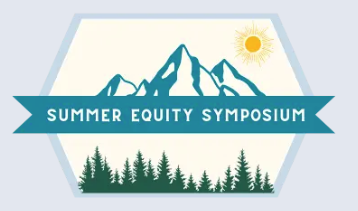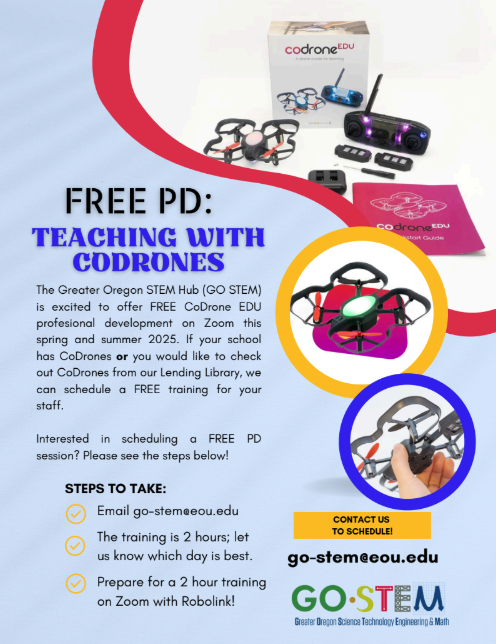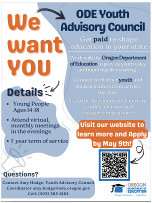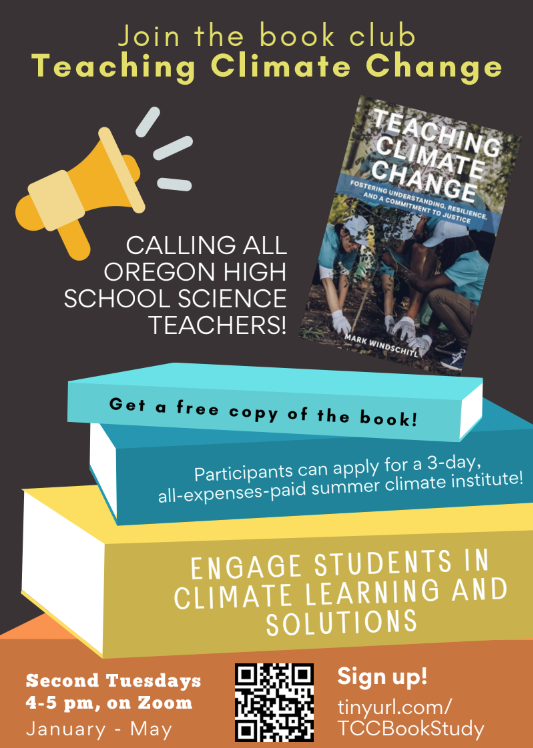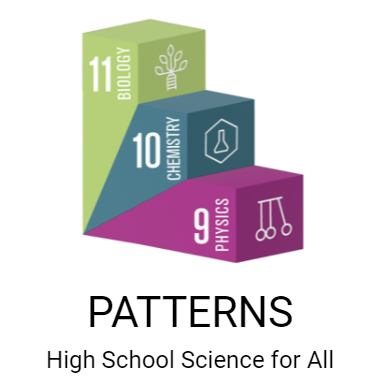TOST. July 2024
.jpg) THE OREGON SCIENCE TEACHER Summer 2024 Summer Update Issue THE OREGON SCIENCE TEACHER Summer 2024 Summer Update IssueOSTA 2024 Fall Conference, Eugene OR, NovemberNominations Open for OSTA Awards Summer Learning Opportunities Across OregonOregon Department of Education Updates Two New NGSS Quality Units PostedJoin Us at the 2024 OSTA Conference in Eugene Oregon! November 2, 2024, Roosevelt Middle School, Eugene Oregon Oregon is such a special place. Our varied geography, many cultures, and ways of knowing provide many commonalities among our thirteen regions, and outside of the state. Of course there are many differences too, and that’s what makes Oregon so special. This conference features presenters, exhibitors, and sessions to provide a full spectrum of Science/STEM professional learning and highlight some of the incredible science and science teaching happening in our state. Have fun connecting with what makes your region and your own science teaching fun and unique! We look forward to our time together in Eugene on Saturday, November 2, 2024!Registration for the conference is now open. Early bird registration open until October 4th* OSTA has arranged for special rates on hotel room blocks. Due to limited availability, we encourage you to reserve your room as soon as possible. When booking, please mention that you are attending the “Oregon Science Teachers Association” Event access the negotiated rate. Back to top Nominations are now open for OSTA annual awards Award recipients will be announced at the annual conference. OSTA Outstanding Classroom Teacher Award – Click to NominateThese awards are meant to recognize and honor the work of outstanding classroom teachers from OSTA’s 13 Regions around Oregon. We award up to four of these awards in each region in the categories of Early Career (1-3 years of classroom experience), Elementary, Middle, and High School. Awardees will be selected based on their ability to motivate student achievement and excitement in science, community and administrative support, ability to support and mentor new and preservice teachers, and overall contributions to the profession.The Sunrise Scholarship – Click to NominateFor teachers who have completed less than five years of full-time teaching, this scholarship is used to pay registration to attend two consecutive Oregon-hosted OSTA Conferences. Other expenses of attending the conferences are not covered. Recipients agree to volunteer to help out in some way at the second of these conferences, and are encouraged to participate in OSTA activities to learn more about the organization. Each scholarship winner will receive a free two-year membership in OSTA.The Special Service to Science Education Award – Click to NominateThis award honors those individuals who, as classroom teachers, have made significant contributions to science teaching in their own classrooms and beyond. The awardee will be selected based on career longevity and body of work, statewide and regional influence, enthusiasm for science, and the ability to motivate students and colleagues alike.The Distinguished Service to Science Education Award – Click to NominateThis award is intended for nominees involved in teacher training programs at the college level, ESD, district administrators or other administrative positions who have made outstanding contributions to mentoring and developing new teachers. The awardee will be selected based on career longevity, breadth of influence, enthusiasm for science and the profession of science education, and the demonstrated ability to motivate.Special Service to the Oregon Science Teachers Association Award – Click to NominateThis award will be given to an individual who has made significant and long-term contributions of time and effort to supporting the mission of OSTA and to facilitate excellence and continuous improvement in science education. NGSS Team Award – Click to NominateAs Dr. Okhee Lee said, NGSS implementation is a relay, and the strongest runners – the classroom teachers – take the baton over the finish line. OSTA has created the NGSS Team Award to honor the incredible teamwork happening at schools and districts statewide. This award will be given to a team of K-12 teachers who are sharing the work of implementing NGSS-aligned curriculum and assessment at their school or in their district. Back to topSummer Teacher Learning Opportunities Across OregonDiack Field-based Science Inquiry Workshop: August 5 – 7, 2024Molalla Retreat Center Patterns Physics Units 1-3 (In-person Workshop A) – Units 1-3 will be covered in this workshop. Unit 1- Patterns and Inquiry, Unit 2: Texting and Driving, Unit 3 – Energy and EngineeringDates: July 29 – August 2, 2024Time: 8:30 AM – 3:30 PMLocation: Sunset High School, 13840 NW Cornell Rd, Portland, OR 97229Facilitators: Bradford Hill & Matt McCollum Patterns Physics Units 4-6 (In-person Workshop B) – Units 4-6 will be covered in this workshop. Unit 4 – Engineering a Shoe, Unit 5 – Waves and Technology,Unit 6 – Electricity, Power Production, and Climate ScienceDates: August 12-15, 2024Time: 8:30 AM – 3:30 PMLocation: Sunset High School, 13840 NW Cornell Rd, Portland, OR 97229 Facilitators: Matt McCollum & Bradford Hill PATTERNS CHEMISTRYPatterns Chemistry is the second course in the 3-year high school Patterns Science sequence. This workshop focuses on three-dimensional (3D) learning through culturally responsive, phenomena-based storylines that intertwine the disciplinary core ideas of chemistry with the scientific and engineering practices and crosscutting concepts as described in the Next Generation Science Standards (NGSS). Participants will experience the Patterns Approach of using inquiry and exploration to teach content to students as well as how to integrate classroom discourse into their instructional design including a variety of data discussion methods. Participants will also learn how to include instructional practices that support student scientific writing that advance equitable engagement of students as they grapple with real-world applications in Chemistry. These applications involve social and environmental justice themes and mathematical patterns and trends. Patterns Chemistry Units 1-3 (In-person Workshop A) – Patterns Chemistry Units 1-3 will be covered in this workshop. Unit 1 – KMT and Climate Change, Unit 2 – Atomic Structure and the Periodic Table, Unit 3 – Nuclear ChemistryDates: July 29 – August 2, 2024Time: 8:30 AM – 3:30 PMLocation: Sunset High School, 13840 NW Cornell Rd, Portland, OR 97229Facilitators: Andrea Leech & Jomae Sica Patterns Chemistry Units 4-6 (In-person Workshop B) – Patterns Chemistry Units 4-6 will be covered in this workshop. Unit 4 – Bonding and Intermolecular Forces, Unit 5 – Chemical Reactions, Stoichiometry, Unit 6 – StoichiometryDates: August 5-9, 2024Time: 8:30 AM – 3:30 PMLocation: Sunset High School, 13840 NW Cornell Rd, Portland, OR 97229.Facilitators: Kristi Miller & Jomae Sica PATTERNS BIOLOGYThis workshop immerses participants in the dynamic world of biology education, focusing on the integration of three-dimensional (3D) learning. Through culturally responsive, phenomena-based storylines, rooted in the disciplinary core ideas of biology and the scientific and engineering practices, alongside crosscutting concepts outlined in the Next Generation Science Standards (NGSS), educators delve into the immersive experience of Patterns Biology—the apex of the 3-year high school Patterns Science sequence. Engaging in hands-on lab work, participants explore the intricacies of biological phenomena, fostering inquiry and exploration as central pedagogical tools. These labs serve as a cornerstone for teaching content to students, emphasizing the integration of scientific practices with core concepts. Through guided discussions and demonstrations, educators gain insights into effective instructional strategies, navigating the intricacies of laboratory procedures and fostering student engagement in scientific inquiry. Furthermore, participants delve into the art of integrating talk structures and fostering meaningful classroom discourse. Embracing a variety of data discussion methods, educators learn to cultivate environments where students actively participate in scientific dialogue, enhancing their understanding of biological concepts and processes. In addition to honing instructional techniques, this workshop equips educators with strategies to support student scientific writing, fostering equitable engagement across diverse learner populations. By exploring real-world applications within biology, including themes of social justice and the implementation of Oregon’s Tribal History/Shared History lessons, educators empower students to grapple with complex biological concepts and their broader implications. Through this comprehensive approach, educators gain the tools and knowledge necessary to create dynamic learning experiences that inspire curiosity, critical thinking, and a deep appreciation for the beauty of Biology. Patterns Biology Units 1-3 (In-person Workshop A) – Patterns Biology Units 1-3 will be covered in this workshop. Unit 1: Ecosystems & Biodiversity, Unit 2- Biomolecules, Unit 3 – Cells to Organisms. Dates: July 29 – August 2, 2024Time: 8:30 AM – 3:30 PMLocation: Century High School 2000 SE Century Blvd, Hillsboro, OR 97123 Facilitators: Charlotte Denis, Nicole Matthews, Avery Marvin, Jason Baca Patterns Biology Units 4-6 (In-person Workshop B) – Patterns Biology Units 4-6 will be covered in this workshop. Unit 4 – Genomics,Unit 5 – Evolution, Unit 6 – Ecosystem Matter & EnergyDates: August 5-9, 2024Time: 8:30 AM – 3:30 PMLocation: Century High School 2000 SE Century Blvd, Hillsboro, OR 97123 .Facilitators: Jason Baca, Scott Davis, Avery Marvin Idaho Science Teacher Association Conference (ISTA)with ICTM & IDEEA Annual ConferenceAugust 1 & 2, 2024, Coeur d’Alene, High School Keynote Speakers: Stephen Pruitt and Jo Boaler What: Meet NGSS, Common Core, Climate Literacy, and Ocean Literacy Standards through engaging experiential activities supported by a range of strategies and skills. Explore place-based inquiry, Scratch coding, and digital storytelling. Try different robotics tools to take student learning to the next level. Incorporate local phenomena and student-directed research projects to drive learning.Offered 100% free through support from Oregon Coast STEM Hub (OCSH). Receive a $100 stipend + transportation reimbursement after spending an enjoyable day with us at the Oregon Coast! (Funding priority given to educators in the OCSH service area, but all are welcome and we hope to compensate everyone.) Delicious lunch, breakfast and snacks also provided, with time to collaborate outdoors with colleagues. Presented by veteran educators Rick Reynolds, M.S.Ed., Founder of Engaging Every Student and Edward Nichols, M.S.Ed., Teacher from North Bend. Special appearances by Kama Almasi, Ph.D., new Director of the Oregon Coast STEM Hub and other experts from the area. Get a certificate for 6 PDUs, $100 and more after you attend the workshop and reflect on how you might use what you learned to engage students. Receive free curriculum and guidance to help receive grant funding to support place-based/STEAM learning.When: Monday, August 19, 2024 North Bend, Oregon 9:00 – 3:30 pm (Open to all pre-K – 12 educators (We will break into grade-band teams.)Where: North Bay Elementary School93670 Viking Ln #1North Bend, OR 97459Click the link to register: https://docs.google.com/forms/d/e/1FAIpQLSf4OisKdNBHmvREvTUJ3Rb6Wo_nDN-5jYNCCU3xsPu6fkjngA/viewform ____________________________________________________________Free Earth Science Teacher Online CourseThe University of Portland STEM Education and Outreach Center offers a self-paced online course about plate tectonics, earthquake, and tsunami in the Pacific Northwest.The four modules are:• Pacific Northwest Plate Tectonics• Earthquake Basics• Cascadia Earthquake Science and Hazards• Cascadia Tsunami Science and Hazards Within each chapter, a video lecture (or series of video lectures) introduces the topic,along with additional videos and animations. Most chapters contain lesson plans forclassroom activities and demonstrations (including student worksheets and answerkeys). These lesson plans were designed for middle school students but can beadapted to elementary, high school, and college levels and are aligned to the NextGeneration Science Standards. Successful completion of the course will result in receipt of a certificate for 28 PDUs. If you have an interest and would like to register for the course, please send your preferred email address to: Bob Butler, University of Portland Professor Emeritus, [email protected]. _________________________________________________________________Registration is now OPEN for SuperQuest 2024!SuperQuest is our flagship Professional Development program and will be offered VIRTUALLY for all to participate statewide and beyond. There is no charge to attend due to a gracious sponsorship. We hope you will join us for engaging PD that you can implement immediately into your classroom.August 5-8 and August 12-15, 2024 Register for as many specific sessions as you wish! VISIT OregonCSTA.org for complete dates, course descriptions and to REGISTER.Topics include….Computer Science Optional Standards Update from ODE (tentative)Modern App Design with Python and PyQt6Artificial Intelligence: The good, the bad and the ugly of harnessing it for the classroom and beyondMake your intro to computer science class count as a high school math graduation creditGodot 2D/3D game design engine similar to Unity and Unreal Engine. Free and FERPA compliantROV-Underwater RoboticsIntro Python – easy and fun to learn and teach, never asked, “Why do we have to learn this?”Intermediate Python – through AP course topicsImmersive Realities: creating VR/AR class programming The Oregon Computer Science Teachers Association (OregonCSTA) is an organization of teachers training teachers in Oregon since 1984. Our main focus is professional development in the areas of computer science and engineering education for K-12 educators and extended program volunteers.Back to topAOregon Department of Education Update In case you didn’t see it, here is a link to the most recent ODE newsletter:June 2024 – Science Educator Update Back to topTwo New NGSS Design Badge Quality High School Units Postedhttps://www.openscied.org/curriculum/high-school/high-school-instructional-materials/ See the unit and the corresponding EQuIP Rubric for Science evaluation report here. |
Michael Jaeger
0
